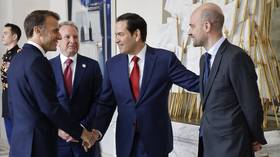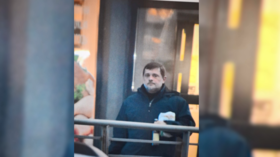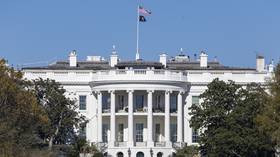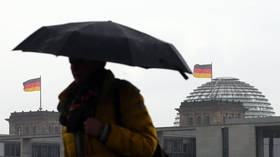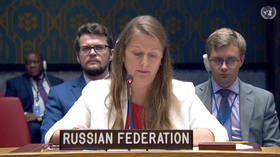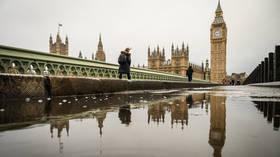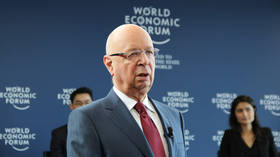"Ancient Roman tactics are the solution to Chechnya"
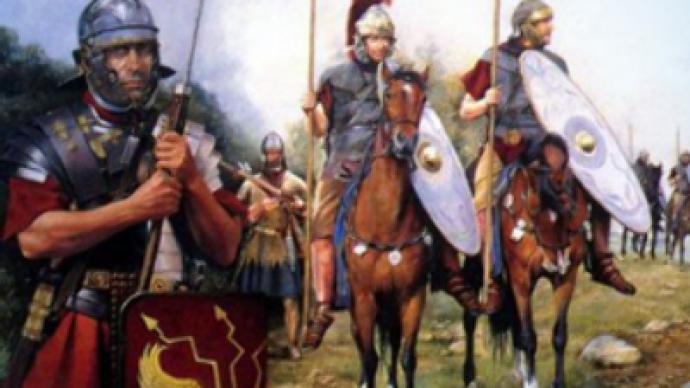
Prominent Russian journalist and political analyst Nikolay Svanidze spoke with RT on the sources of the two military conflicts in Chechnya and what the future holds for the republic.
RT: Why was it Chechnya, of all the southern Russian republics, that became the grounds for major extremist movements?
Nikolay Svanidze: Well, it started back in the early 1990s. It so happened that the Chechen Republic became a base for radical Islamist forces. Why? I think to some extent it was incidental. For one thing, a very ambitious Soviet general, who probably craved to have Chechnya separated from Russia, came to power there. There were a lot of subjective things at play.
Chechnya is what gave Russia the experience – which had to be acquired eventually – and understanding that using military force to make the republic remain part of the Russian Federation was probably not the right option. It is the Caucasus we are talking about where it is very hard to solve such problems by using force.
RT: Is there any way to establish long-term peace in the region?
N.S.: I think a way has been found – starting from the father of the current president – Akhmad Kadyrov. The solution is not new. Ancient Romans thousand of years ago used it, and the British too. You can’t conquer people – especially freedom-loving people, even if they lag behind in terms of civilization – by using outside force.
One has to find an individual from the people, find forces within the people who could control the situation. Ones who would be ready, no matter the reason – for fear, conscience, money, or ideals – to cooperate and keep things under control. In that case the situation could be stabilized.
During the first Chechen campaign the force method prevailed and at the very beginning of the Second military campaign the force method also prevailed. However, eventually it became clear that the use of force was futile as it only helped fix the situation for a few months. Then it blows up again, unless a respected and powerful representative from the people takes the situation under control.
RT: Could the Second Chechen campaign have been avoided?
N.S.: It’s hard to say whether it was possible to avoid the confrontation. Everything depended on the situation within Chechnya, and I think even if it was possible to avoid it – it wouldn’t have been for long. And an implosion was pre-programmed anyway.
The implosion potential was caused by the fact that initially the situation was developing under the impact of the forces who were striving for independence or a very large autonomy, but afterwards Islamists started acquiring more and more power. Not just any Islamists – radical ones, the forces of Islamist extremism. They could not have been satisfied with just autonomy. Those were religious fanatics who would never hesitate to shed more and more blood, without end. And I don’t think a deal with them was possible.
RT: Who do you think was behind the militants?
N.S.: I think a world terrorist network was behind them, no doubt. Radical Islamist forces in some Muslim countries. It does not cast a shadow on the religion, of course. It casts a shadow only on some states. The radical Islamist forces are international. And Al-Qaeda can be traced here without a doubt. It’s an international terrorist network, and in this case Chechnya was just one of the bases in a worldwide war of civilizations.
RT: What goals did these Islamist forces have in Chechnya?
N.S.: The ultimate goal was to seize the world, and fully modify the vector of the development of world civilization to suit their own needs. As for Chechnya in particular, the goal was to expand the influence first in North Caucasus, then throughout the Caucasus as a whole, and ultimately to create a large extremist religious state.
RT: When we look back – what mistakes have been made during the Chechen campaigns which could have been avoided?
N.S.: It’s hard to go into details but I think sometimes the Federal forces tend to forget that the confrontation was taking place on the territory of the Russian Federation, that Chechen people were part of Russia. Their anger at the militants was at times reaching the overall peaceful Chechen population and causing parts of it take the side of the militants. The spite and anger on both sides sometimes reached unprecedented heights and that did not help the situation. It only prompted the escalation of the hostilities and the rage. That is why it became important to find an authoritative Chechen, because the situation was threatening to go beyond the conflict between the federal forces and the militants, and turn into a conflict between Chechnya and Russia – something to be avoided by all means. No military means could solve the situation. The conflict would’ve dragged for years.
RT: How do you view the future of Chechen republic?
N.S.: It’s hard to forecast. One can only hope for the better. President Kadyrov has a firm grip of the republic. However, the thing is that danger is not restricted to Chechnya alone. We can see what is going on in Dagestan and Ingushetia.
Whereas during the periods of economic prosperity the fires were put out by money, now it is more problematic, due to the economic crisis, and it does not help in quelling the situation.




